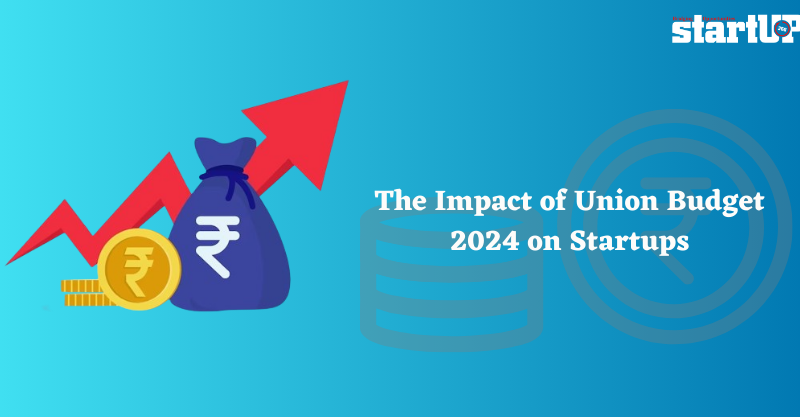The Impact of Union Budget 2024 on Startups
As the eagerly awaited Union Budget for 2024 approaches within the next two weeks, the entrepreneurial community is buzzing with anticipation. This budget, serving as a crucial litmus test for economic policies, holds particular significance for India’s burgeoning startup ecosystem.
India’s startup ecosystem, ranked as the third-largest globally with over 92,683 emerging companies as of February 2023, has raised expectations from the entire startup community and its stakeholders. The overarching question looms — will Union Budget 2024 pave the way for substantial growth in India’s dynamic startup landscape?
Keenly Observing:
Industry leaders and innovators are vocal about their expectations, emphasizing the potential of fiscal measures to shape startup growth. Budgetary allocations and policy decisions will be closely scrutinized to assess their capacity in providing a robust impetus to the startup landscape. The budget’s contours are anticipated to play a pivotal role in fostering an environment conducive to entrepreneurial ventures, offering insights into whether fiscal measures will act as a catalyst for startup ecosystem progress, including the force that fosters its growth — the investor community.
Standardizing Capital Gains Tax:
A crucial expectation from the investor community fostering the startup ecosystem revolves around standardizing capital gains tax. The desire is to establish uniform tax rates and holding periods for both private and publicly listed shares. This move is expected to bring clarity and coherence to financial regulations, streamlining the taxation process for investors across various investment avenues.
Expanding Tax Deferral on ESOPs:
Another key expectation is the expansion of tax deferral on Employee Stock Ownership Plans (ESOPs). Currently confined to employees of startups falling under section 80-IAC of the Income-Tax Act, 1961, investors advocate for an extension of this tax deferral to encompass all employees of startups registered under the Department for Promotion of Industry and Internal Trade (DPIIT). Such an expansion is seen as a strategic move to incentivize and retain talent within the startup sector.
Inclusive Tax Regimes for Firms:
Investors emphasize the need to extend concessional tax regimes, currently applicable to companies, to also cover partnership firms and Limited Liability Partnerships (LLPs). This expansion is expected to create a level playing field, encouraging diverse forms of entrepreneurial structures to thrive under favorable tax conditions.
Personal Tax Regime Flexibility:
Taxpayers advocate for flexibility in switching between the old and new personal tax regimes, reflecting a desire for individuals to have the autonomy to opt for a tax structure aligning with their financial objectives.
Summing Up:
Expectations from venture capitalists (VCs), other investors, and the entire startup community for Union Budget 2024 revolve around creating a more conducive investment environment through standardized taxation, inclusive benefits for employees, and flexible tax regimes for individuals. If implemented, these measures will undoubtedly play an instrumental role in boosting the overall progress of India’s startup ecosystem.

